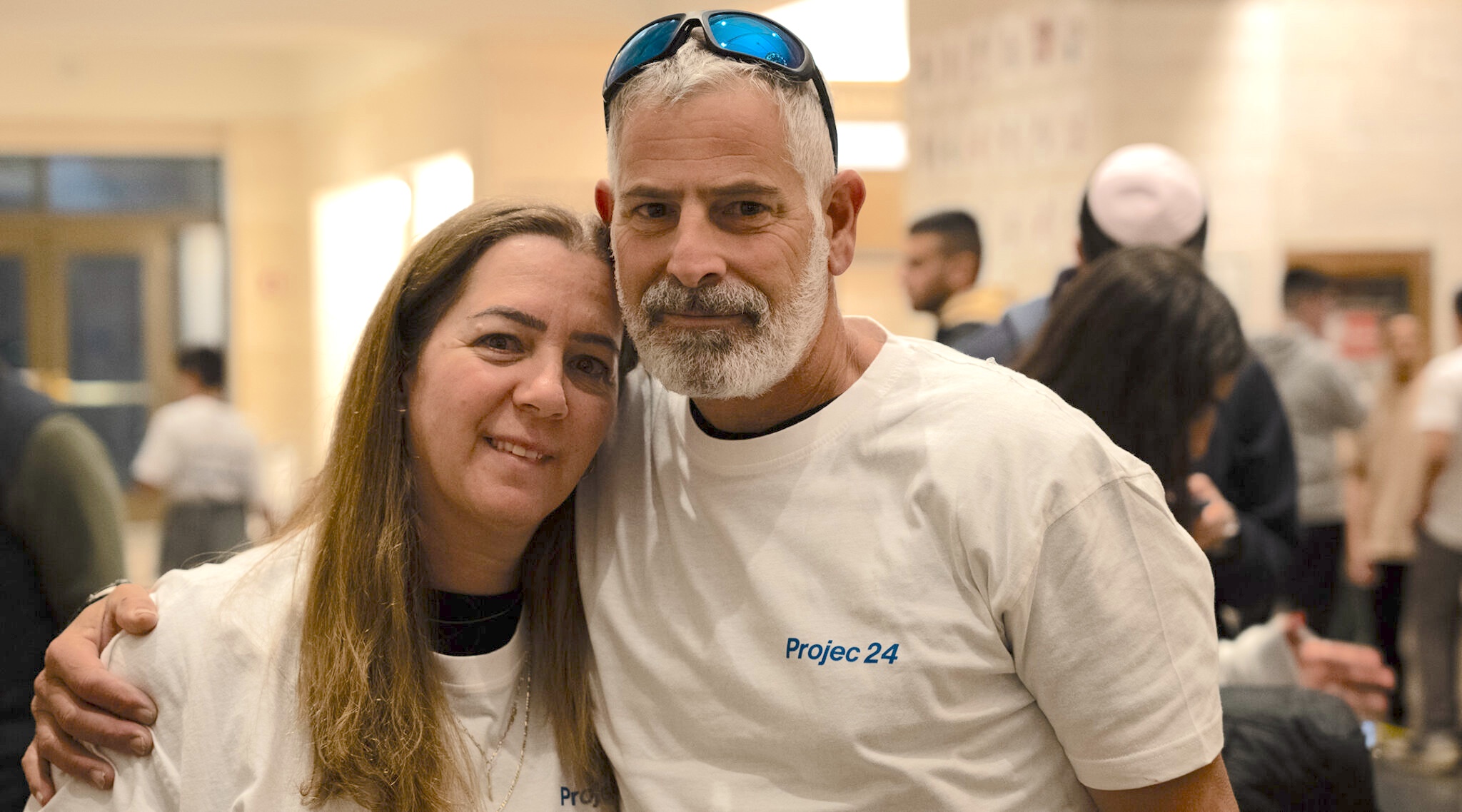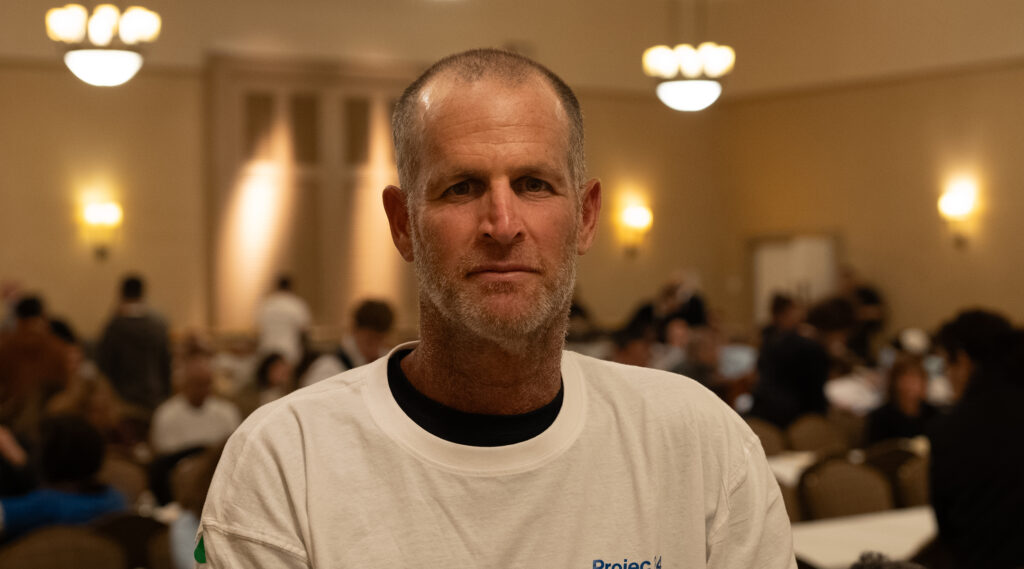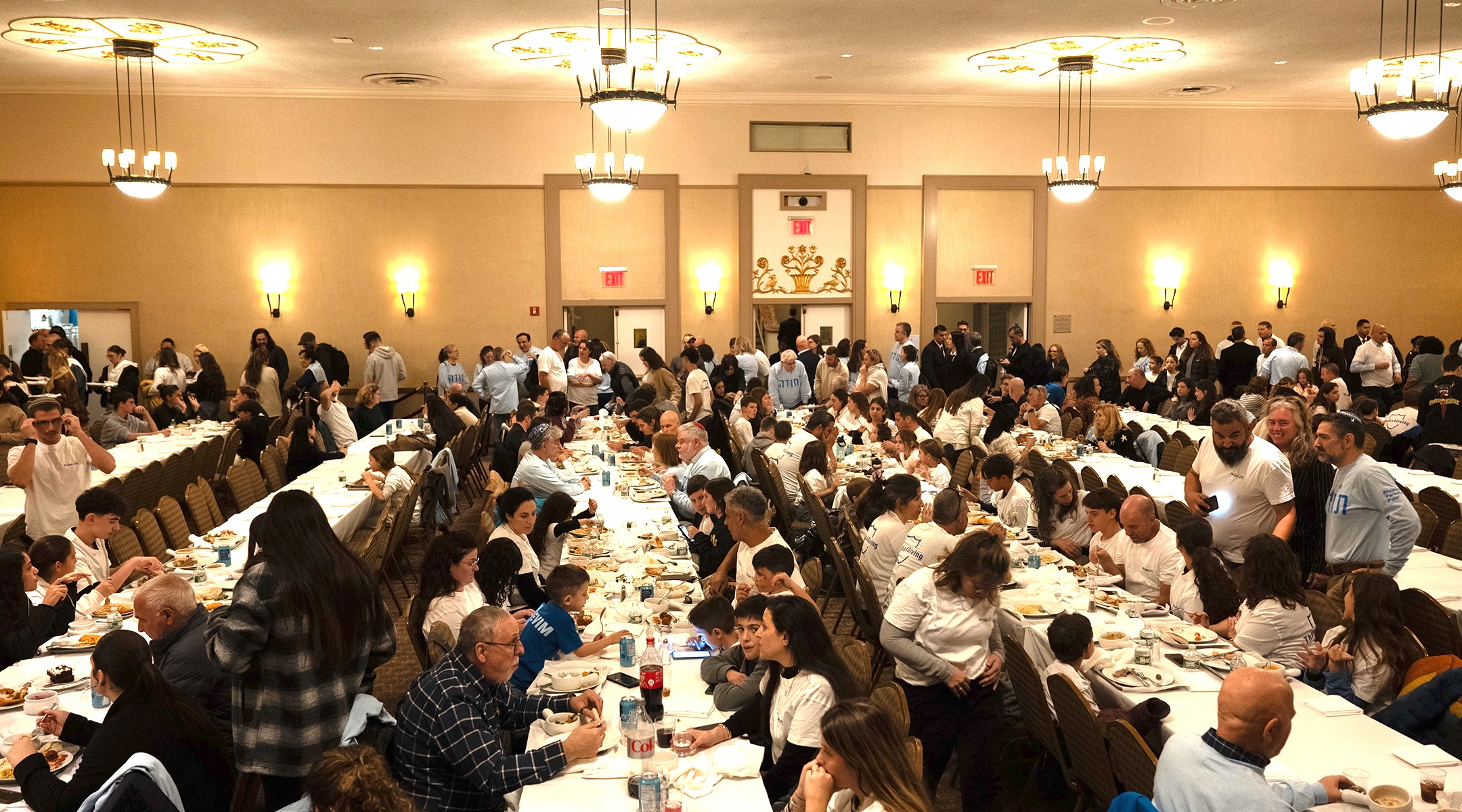On a sleepy Tuesday evening on the Upper West Side, the basement of Reform synagogue Rodeph Sholom was brimming with noise, energy and approximately 400 Israelis.
The congregation was hosting Thanks4Giving, a pre-Thanksgiving dinner and gala that celebrated its guests: the civilian guards — and their families — of kibbutzes and other agricultural communities on the Gaza border attacked by Hamas on Oct. 7, 2023. The dinner was part of a weeklong trip that sent the 400 Israelis to live with host families drawn from 35 synagogues in and around the city. (Simultaneously, another 300 Israelis were doing the same in Florida.)
The mood in the ballroom was jovial as Israeli guests, American host families and other attendees chatted over gussied-up takes on standard kibbutz fare: chicken schnitzel, spaghetti and Israeli salad. Rachael Evans, Rodeph Sholom’s chief of staff and operations, said the shul — one of Manhattan’s largest — had to rent new tables to fit everyone.
But as the Israelis experienced a warm welcome in the United States, they were also grappling with the reality of again living — following months as evacuees — in the same place where they fought for their lives or hid in terror just over a year ago.
“It’s hard now in the kibbutz. Most of the kibbutz is still evacuated to Tel Aviv,” said Karen Oren, who lives on Kibbutz Reim, adjacent to where the Nova music festival massacre took place, with her husband, Harel, and their daughter Mia, both present at the dinner.
Harel, head of Reim’s security squad, was one of just six guards who jumped to defend it against Hamas attackers — a force that later grew to 10 by the time military and police arrived. “Just promise me you’ll put on your helmet and your vest all the time and be safe,” Karen recalled telling her husband after an early-morning alert sent him into action.

Karen (left) and Harel Oren (right), a married couple who live on Kibbutz Reim, at Congregation Rodeph Sholom, New York, Nov. 12, 2024. (Joseph Strauss)
Karen, their two youngest kids and three dogs scrambled into the safe room and remained there for 26 hours.
After Oct. 7, about 50 people remained on the kibbutz as the rest of the 450 relocated, according to Harel. As head of security, Harel stayed put.
But for Karen, it took five months of living apart from her husband in Eilat and Tel Aviv hotels before she could even step foot in Reim — and still, a year after the attack, settling back in has been a challenge.
“Even walking on the sidewalks of the kibbutz feels bad, because in a way we were violated,” Karen said. “To walk the same sidewalks that the terrorists walked on is not so easy for us.”
Harel said he did not feel the same anxiety about staying. “I was born in Kibbutz Reim, I’m 55, my father was one of the founders,” Harel said, adding that he feels bound to the land. “I don’t see anywhere else that I can live.”
Nadav Roth, a geography teacher who fought with the civilian emergency response team of Kibbutz Magen, was relocated with his family to a hotel by the Dead Sea. They spent eight months there while Roth recovered from multiple breaks in his arm sustained during the fighting.
Now, a few months into his family’s return to Magen, Roth said life on the kibbutz is feeling closer to normal.
But it took “a long time,” Roth said, before his wife felt comfortable driving on the road toward the site of the Nova festival — also not far from Magen — or letting him leave the house at night, and that she does not yet feel at ease.

Nadav Roth, who helped defend Kibbutz Magen as part of the civilian guard, at the kibbutz-style dinner, Nov. 12, 2024. (Joseph Strauss)
Roth himself was glad to be back at Magen, where his parents, sister and her family all reside. But alongside the excitement of his homecoming were the traumatic memories, and the ongoing worries about neighboring kibbutzim whose residents are still held hostage. “You remember it all the time,” Roth said. “All the time.”
The event was organized by Project 24 — which connects embattled communities on Israel’s northern and southern borders with North American Jews — in collaboration with UJA-Federation of New York. Following the dinner, the crowd moved upstairs into the sanctuary where speakers, including Project 24 co-founder Daniel Gradus and Senior Rabbi Ben Spratt, spoke about the project, and about the value of a shared Jewish community.
“We focus so much on how we bring America to Israel,” Spratt told the New York Jewish Week. “But how do we bring Israel to America?”
The night provided some respite for Israelis facing traumatic memories in returning to their kibbutz. Once the gala ended, Israelis and hosts mingled in the lobby where they made plans including walking through Central Park and catching a Brooklyn Nets game.
“It’s good,” Roth said. “It’s something to clear the head.”
The New York Jewish Week brings you the stories behind the headlines, keeping you connected to Jewish life in New York. Help sustain the reporting you trust by donating today.





